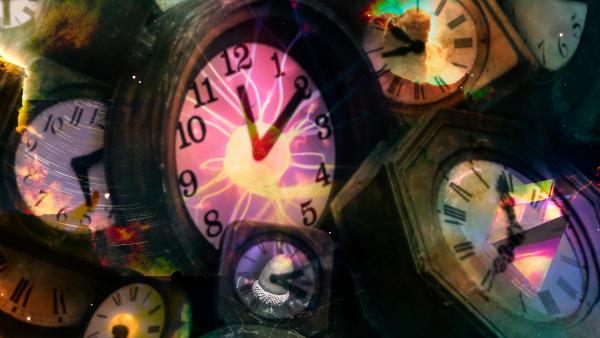In 1960, a young primatologist stared deeply into the eyes of a wild chimpanzee. She was Jane Goodall. He was David Greybeard. Their mutual gaze changed animal science forever.
Nature
Locking eyes with another creature in the wild can be a profound experience. For physicist and writer Alan Lightman, half a second of eye contact with a pair of ospreys felt like an epiphany.
Exchanging glances with the natural world happens more often than you’d think. It can be so profound, there’s a name for it: eye-to-eye epiphany.
The feminist eco-philosopher Val Plumwood was one of the few people to survive a crocodile's death roll. The attack reoriented her thinking about life, death, and what it means to be human.
Sometimes you stumble upon a book that sets you on a whole new path. For Israeli historian and philosopher Yuval Noah Harari — author of "Sapiens," "Homo Deus," and "21 Lessons for the 21st Century" — it wasn’t a novel, a memoir, or even a history book that changed his world. It was a book about chimpanzees.
Clocks and calendars chop time into increments. It’s efficient, and it helps us get to meetings on time. But what does time feel like when you stop counting it?
What can we learn from the natural world — from animals, from the water — about surviving and even celebrating the cold?
Filmmaker Werner Herzog, whose films include "Grizzly Man" and "Cave of the Forgotten Dreams," recommends a nonfiction collection of J.A. Baker's observations of peregrine falcons, recorded in the early 1960s.








